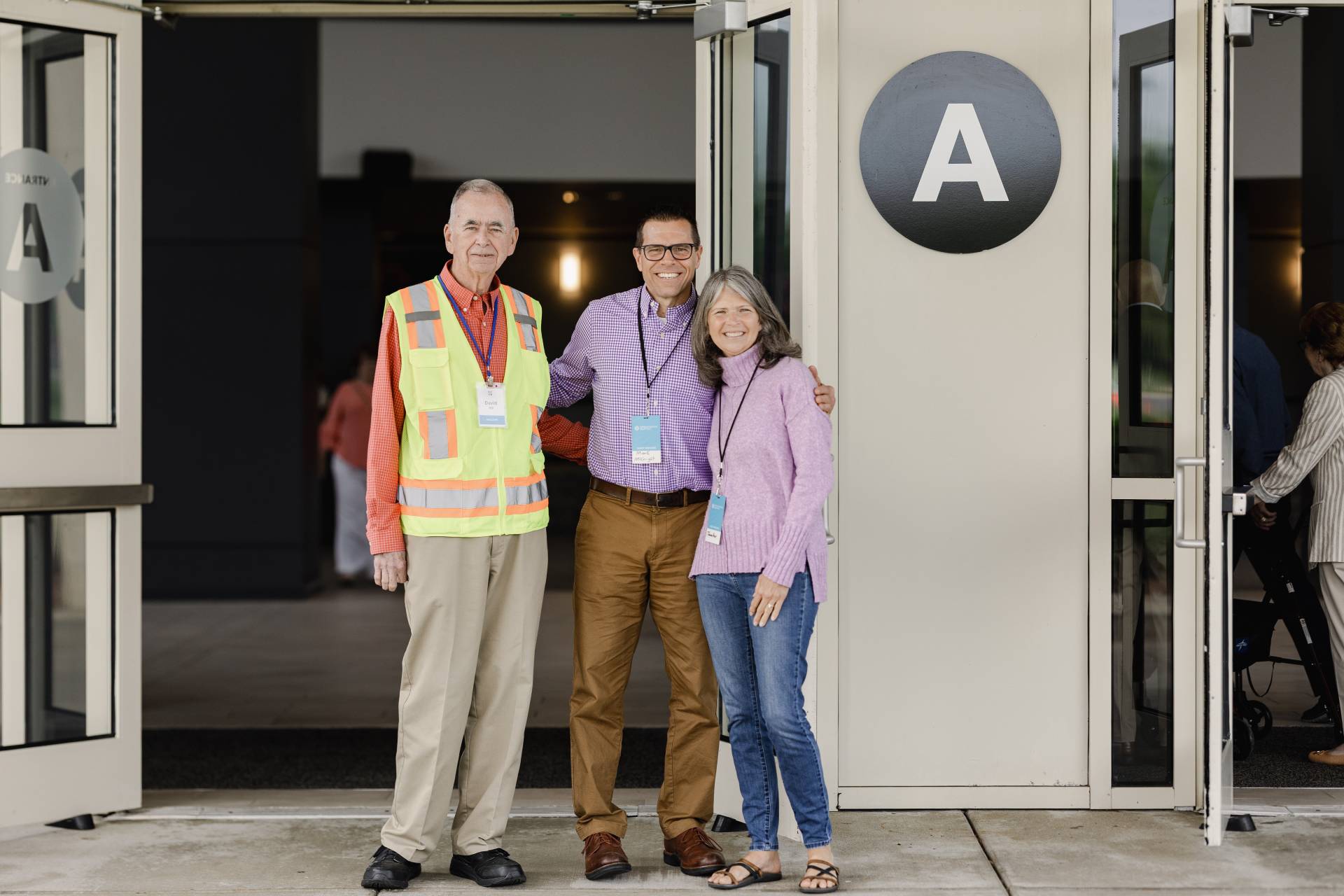4 Ways to Strengthen Your Connections Ministry
Churches don’t drift toward connection. In fact, the larger or busier a church becomes, the easier it is for people to slip in, slip out, and never find a place to belong. That’s why connection ministry matters so deeply. It’s more than friendly faces at the door. It’s about shepherding people into community and purpose.
We often talk about connection as the front door of the church, but the truth is, it’s more like the foundation. Everything we do—from group life to service opportunities to leadership development—is shaped by how well we know and walk with our people. A healthy connections ministry isn’t just about growth; it’s about longevity, discipleship, and the witness of a church that truly reflects the body of Christ.
If you’re ready to take your connections ministry deeper—or you’re just trying to figure out where to start—here are four ways to build something that lasts.
1. Start with story
Before you hand someone a schedule or show them how to join a group, make space to hear their story. People need to be known before they’ll commit. We’ve found that the more intentional we are about listening, the more likely people are to find a meaningful place to belong.
This doesn’t have to be complicated. Ask about their background, their spiritual journey, or what brought them through the doors. You might be surprised how many people have never had the opportunity to share their testimony or reflect on what God is doing in their life.
Stories are where discipleship begins—because that’s where calling often shows up. A single conversation can reveal a heart for mentoring, a burden for missions, or a skillset that fills a need your team has been praying about. But we miss all of that when we rush to plug people into roles without first pausing to listen.
One of our greatest wins as a church isn’t when someone signs up to serve—it’s when someone says, “I feel like this is where I belong.”
2. Use assessments wisely
We use tools like DISC, spiritual gifts assessments, and passion inventories not to define people but to guide them. These tools offer language and categories to help people name what they already sense: how God has uniquely wired them to serve.
When used well, assessments create “aha” moments. People begin to recognize patterns, affirm what they’ve felt, or see possibilities they never considered. A stay-at-home parent may discover they’re gifted in leadership. A software developer may learn that their gift of encouragement can be just as impactful outside the office as it is inside.
But remember—the tool isn’t the point. The conversation is. Assessments can sometimes feel transactional if we treat them like forms to fill out and file away. The real transformation happens when someone can sit down with a coach or leader and reflect on their results.
We ask: How does this resonate with your experience? Where have you seen this gift in action? What are you curious about trying? When that dialogue happens, we move connection from a task to a personal discovery.
3. Train lay coaches to walk with people
One of the best decisions we made was to equip lay leaders to meet with people one-on-one. These coaches listen, ask questions, and help connect people to ministry opportunities based on their stories and assessments. And because they’re not staff, they often feel more approachable to someone new.
Our coaches are trained to understand spiritual gifts, guide conversations, and offer clarity about next steps. But more than that, they serve as a relational bridge between someone new and the broader church body. That personal attention makes a big church feel small.
This also allows us to scale well. As more people come through the membership process, trained coaches extend our reach, build relationships, and help ensure no one slips through the cracks. We’ve seen firsthand how someone who came in unsure or disconnected walks away feeling seen, known, and excited to take a next step.
Coaching also creates leadership opportunities within your congregation. Many of our best coaches are people who went through the same process themselves. They’ve experienced the impact of being coached and now feel called to walk with others in the same way.

4. Shift from “filling roles” to “calling out gifts”
Too often, churches approach connection like a staffing puzzle: who can fill this role, this week? But when we view connection ministry through the lens of discipleship, everything changes.
Instead of looking for warm bodies to greet or serve, we begin asking, “Where is God already at work in this person’s life?” Then we match opportunities to those passions and gifts.
This approach has long-term benefits. People who serve in areas aligned with their gifts are more likely to stay engaged. They serve with joy and ownership. They invite others into the mission. And they often begin mentoring others who are just getting started.
It also changes the culture of your teams. When people know they’re serving in their “sweet spot,” you begin to see more innovation, more collaboration, and a deeper sense of spiritual growth within ministry areas.
Calling out gifts means slowing down to recognize what God is already doing—and then equipping people to walk in it. It’s a beautiful way to honor the persity of the body of Christ and the work of the Holy Spirit.

Connections ministry is more than first impressions.
It’s the starting point for life-long discipleship. And when we slow down long enough to truly know our people, we don’t just help them find a place to serve—we help them step into who God created them to be.
The impact of that kind of ministry can’t be overstated. It’s the difference between attending and belonging. Between volunteering and ministering. Between consuming and contributing. It’s where a church stops being a place people go, and starts being a family people grow with.
So if you’re wondering where to start: start with people. Start with their stories, their gifts, their potential. Invite others to come alongside and help carry the weight. And commit to building a connections ministry that doesn’t just welcome people in—it walks with them toward the life God is calling them to live.
Want to strengthen the way your church welcomes and walks with new people Listen to the latest episode of the Elevate Podcast, Beyond Greeters: How Connections Ministry Disciples Your Church, for four practical strategies to move people from attending to belonging—and into their God-given purpose.

Michele Dyer serves as the Connections Minister at Brentwood Baptist Church, where she helps people move from attending to belonging by equipping them to discover their God-given gifts and purpose. With over 15 years on staff and a background in leadership development, Michele 9s currently completing her Master of Arts in Ministry Leadership at Southeastern Baptist Theological Seminary. She is an ICF Certified Professional Coach.
